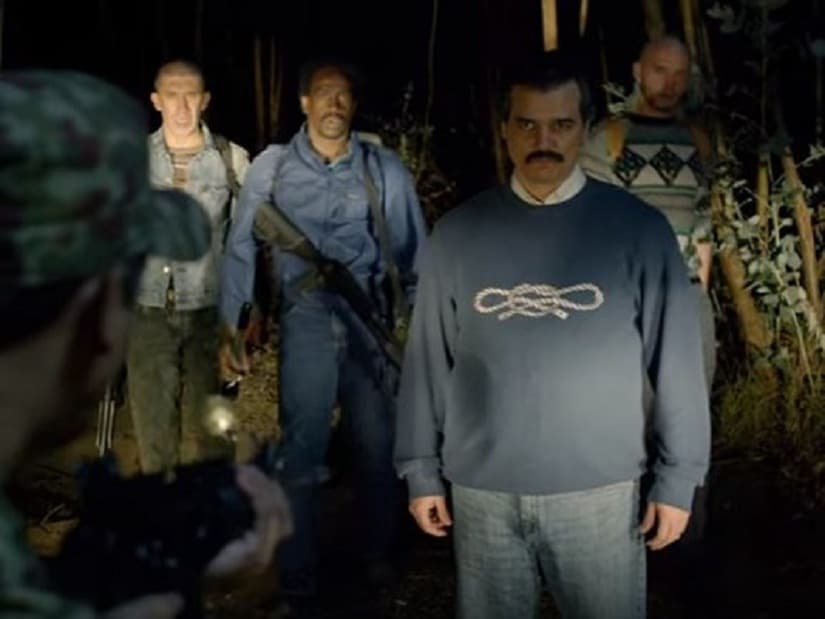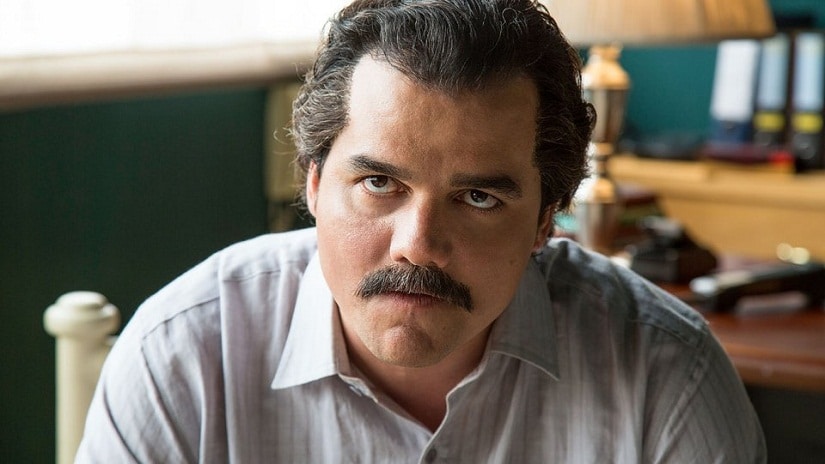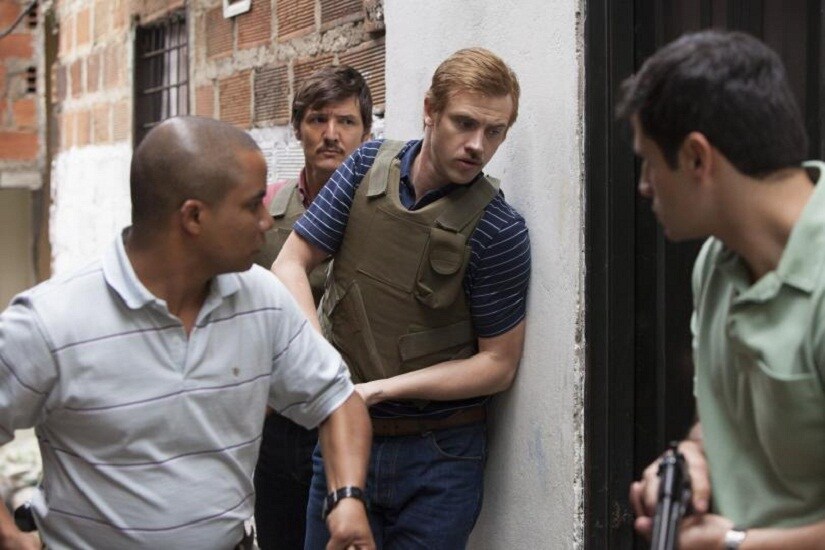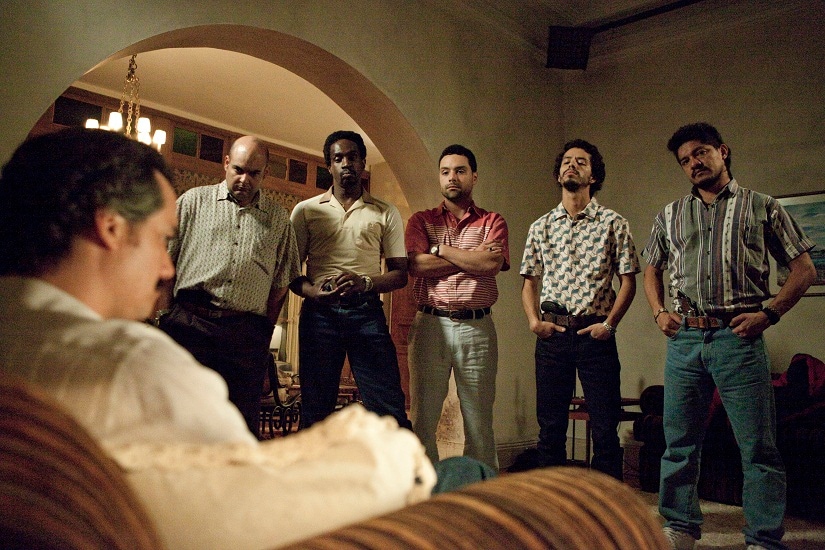Everything that rises, shall fall. If I were to give a one line, curt review of Netflix’s Narcos season two, based on the life of the notorious Columbian drug lord Pablo Escobar, it would simply be that. If season one explored how Escobar took Medellín, Colombia and the whole of Miami by the balls with his cocaine smuggling business, season two deals with repercussions. (Warning: Spoilers ahead) There’s a scene in Narcos season two that will epitomise the inevitable fall of Pablo Escobar; something we all were expecting at some point. [caption id=“attachment_2989674” align=“alignnone” width=“825”]  Narcos season one ended with Pablo Escobar escaping his own prison. YouTube screen grab.[/caption] This is a scene from the beginning of episode six, when as viewers, we are already in the thick of things. The police is after Escobar with far more force than ever seen before. His family is paranoid about his life. His enemies have united against him. It’s not a good time for Escobar. The episode starts with Escobar dreaming about a long lost time when his cousin and best mate Gustavo Gaviria was alive, and things (the Medellín cartel, and business at large) were (more than) hunky dory. Gustavo and Escobar are racing in cars, and his men (sicarios) place bets on who will win. The obvious answer is Pablo, but some of his men are quick to point out, “there is only one man who can defeat Pablo.” And Gustavo does. Escobar is visibly upset; he has a stern frown on his face (this frown is a constant in current day scenario). Gustavo approaches him and says, “You know why you lost Pablo? You are a smart guy, but very stubborn. Somebody has to teach you how to lose.” Narcos season two graphs how Escobar (even more brilliantly portrayed by Wagner Moura, if that’s possible) deals with loss. *** If season one was a choppy, layered narrative about one person (narrated by a voiceover that seemed intrusive and enthralled, as any outsider would be) and their relationship with Colombia, in Season two the battle lines are drawn. [caption id=“attachment_2989680” align=“alignnone” width=“825”]  Wagner Moura ages gracefully as an older Pablo Escobar in season two. Screen grab from Netflix.[/caption] Season two graphs the year 1993, when Escobar was on the run from the police and when he eventually (in real life) gets killed. Season one unfolded over many years and graphed the rise and influence of Escobar, and therefore it was fast-paced, had many parallel narratives, and also managed to miraculously retain the audiences sympathies with its main character, while also denouncing him as the most evil thing to have ever happened to Colombia. In this season, President Gaviria has a lot less patience for Escobar’s antics. Even though business is booming — courtesy the high demand of cocaine in the US — the government, army and some people of Colombia have had enough of Escobar’s reign. But that is the least of his worries. He spends more time in hiding in these 10 episodes, than ever chronicled, because he realises that the end is nearing. There are no greys in Escobar’s life now. Yes, everyone knows he used to be the paisa Don (the rural leader) and he still has immense following in Medellín, but his enemies are killing his sicarios one after another, leaving his family more paranoid than ever. Wagner Moura treats Escobar’s character with a lot less impatience in this season. The character has aged well, both physically and mentally. He is seen bonding with his wife Tata (who is still as loyal to him) and his mother, and is far more worried about his children future. He frowns more, he has stress lines on his face, and we see more close-ups of Moura. Time is taken to show us what what life is like now for Escobar — long, silent shots of concerned faces and revengeful enemies dominate the screen, as opposed to idyllic backdrop of Colombia that put things into perspective in season one. What happens to the other side of people fighting against crime? This is a cruical question best explored by Agent Murphy and Agent Pena. All the murders, failures and death would get to anyone, and these two are perhaps the only grey elements in the season. We see them breaking down, making poor decisions and even sobbing, but it makes their undeterred zeal to capture Escobar seem even more glorious. [caption id=“attachment_2989682” align=“alignnone” width=“825”]  Agent Steve Murphy and Javier Pena go through their own turbulences in the season. Screen grab from Netflix.[/caption] What happens once Escobar has realised his whole cartel is gone? Does he remain the same? Does he get more evil to get his way? There is shift from what he wants to a more holistic view of the outcome of his actions. This season shows us how he has aged, how he has emotions, and is a human being after all. Matters are more political now. A lot more people are involved, and the fight is no longer about the state vs the bad guys. The narrative of Narcos season two also establishes other bad guys, the Cali cartel for example, and have not made Escobar to sole proprietor of the drug war. Now, every time there’s bad news, Escobar shuts his eyes and takes a deep breathe. That’s partly because he is growing older, but it’s also because there’s a lot more at stake. And so when shit starts to hit the roof, the anger is brutal and far more serious than the impulsive anger we saw in season one. By episode seven, shit hits the roof. We see all the patience vanish from Escobar’s face. Every element of paranoia and fear that he bottles inside through the beginning of the season, comes out tumbling like a tsunami towards the end of the season. It’s a bomb explosion of a narrative, this season. The beginning is the haze of blurry smoke; the repercussions of season one. And then comes the war (because there was always going to be another war). *** Season two of Narcos is for the patient viewer. It draws you in with slower editing, more dialogues and much more meat in terms of the story. It takes its time to unfold, and really makes you wonder why you feel like you should root for Escobar. Is it the romanticisation of the anti hero that you fall for? In reality, this is a victory for the writing team of the show, headed by Carlo Bernard and Andrew Black. Their ability to put historical fact on a platter while still retaining the confusing and morally questioning emotions around the drug lord is nothing short of genius. This is exactly how is was in Colombia at the time. From knowing characters via their association to Pablo (his wife, his mother, his children, his sicarios), we see the emergence of strong character graphs in season two. [caption id=“attachment_2989692” align=“alignnone” width=“825”]  Escobar’s sicarios are his family, in season two. Screen grab from Netflix.[/caption] Whether it is Limon, Escobar’s bodyguard who moves up the ladder from being a modest, unrecognised driver in Medellín, to the inner circle of Escobar’s empire; or single mother Maritza, who is the manifestation of the local public of Medellín, who get mixed up in the middle of a very dirty, political war. You think about these characters much after the season is over, and wonder what they would be doing now, in 2016. And so, the million dollar question: Does Escobar die in this season? I’m not going to give it away; mostly because I want you, the reader, to experience what I experienced as I binge-watched the show. I want to be able to imagine your expressions changing from curious patience and many questions, to absolute f*cking, mind-blowing explosion. Yes, the season makes that climb. If Season one of Narcos was like cocaine hit, season two is what happens once the high is over. Brace yourselves.
If season one explored how Escobar took Medellín, Colombia and the whole of Miami by the balls with his cocaine smuggling business, season two deals with repercussions.
Advertisement
End of Article


)
)
)
)
)
)
)
)
)



